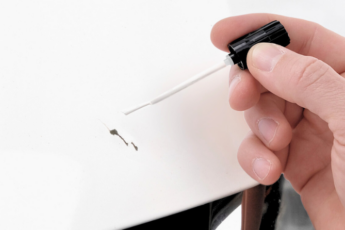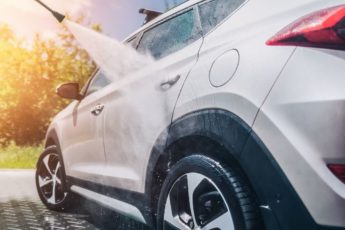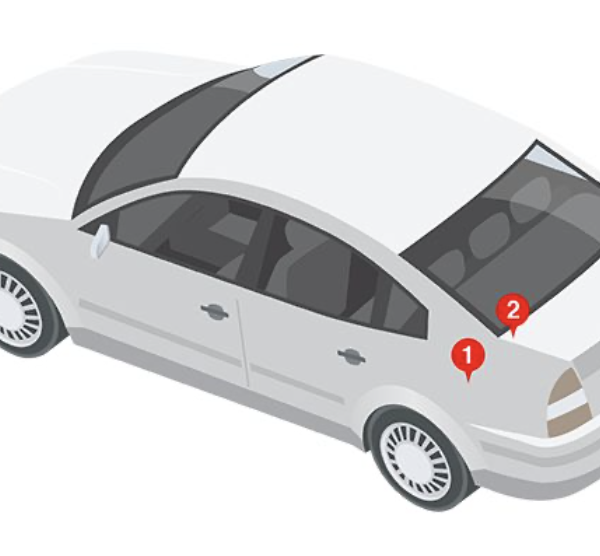Simple Car Repairs That Can Prevent Thousands in Fines
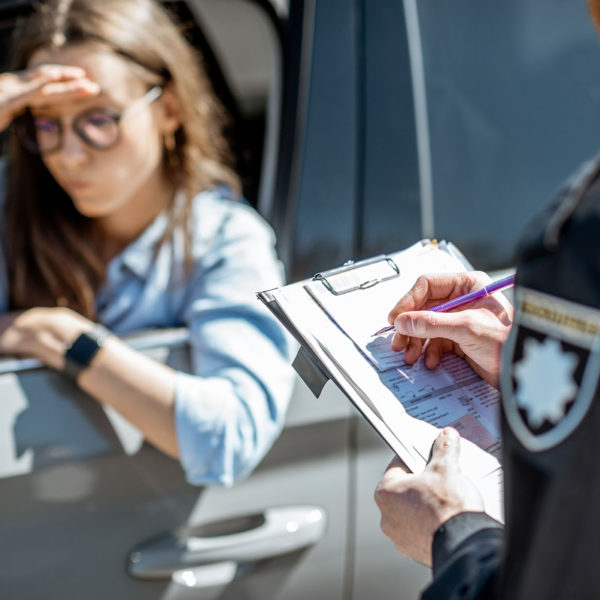
Vehicle ownership is almost like a relationship. It requires constant maintenance and consideration. You have to work to keep things running smoothly, and if you do, you’re rewarded with an excellent, stress-free, even thrilling experience. But if you neglect your responsibilities, let things slide, or don’t put the work in that your baby deserves, you might not like the results.
There’s a million things you can do to increase the length of your automobile’s life (and the quality of your relationship with it). But, today, we are going to focus on just a few super-simple fixes that you can take care of to avoid the massive fines you’ll receive if you don’t. You should do these things even if the laws where you live don’t prohibit them.
However, a word to the wise: they probably do.
So without further ado, here are the simple car repairs that could cost you thousands in fines if not completed.
Worn Tires
Driving with bald (or worn out) tires is not ticketed very often, but for drivers in the UK, it can cost over $10,000! The fines are typically a little smaller here in America, and they vary from state to state. Minimum fines of nearly $200 are common.
The fix for this particular problem is easy: get new tires. But we do have a clever little trick for you to use to see if you actually need new tires. It’s called The Penny Test. The way it works (and why it’s so popular) is with an average, ordinary, everyday penny. You probably have one in your pocket or in a drawer handy right now don’t you?
Well, take that penny and slide it in sideways into the treads of the tires, then look at the penny from the side. If Lincoln’s head passes down into the treads of the tire, then you’re good to go and you do not need to replace your tires. However, if Lincoln’s head is wholly visible above the treads, you’ve got a problem. Check all your tires, but even if one is low on tread, it’s a good idea to take it in and get some new rubber.
This particular fix is not only costly if you get a fine, but especially dangerous if something goes wrong like a tire blowout at highway speeds. Next time you see a penny in your vehicle, remember The Penny Test to make sure you’re on safe, legal tires.
Smogged
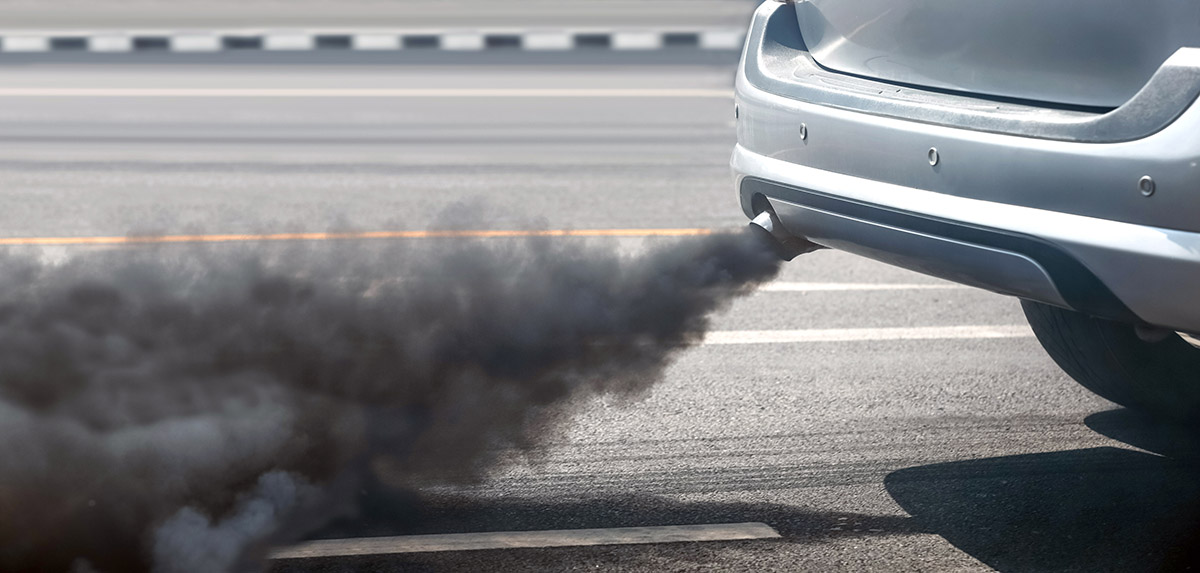
Emissions violations — better known to regular drivers as “smog” tickets — are on the books in most of the states, but not all of them. You can find out if your home state has emissions laws at all (and if they do, what they are) at this link. If your state has no emissions testing laws, then feel free to skip to the next fix (although, always keep an eye on it. If you see smoke or other unexpected emissions coming out of your vehicle, it’s time to call or visit a mechanic).
Now, if you do find your state on the list as one with emissions regulations on the books, don’t worry, it’s still a relatively easy fix. Most of them are time-based regulations. What that means is that you have to have your vehicle checked for emissions every X number of years. That proof has to remain in your car so that you can prove you’re not polluting. Which brings us to another important point: no police officers are riding their motorcycles along behind you checking the quality of the air coming out of your exhaust. So, unless you are popped for some other offense, it’s unlikely you’ll have to produce proof of this.
We’re not saying you shouldn’t get it fixed! We’re just saying that the more of these fixes you do, the luckier you’ll be.
Broken Rear View
They say hindsight is 20/20. Well, we hope that’s the case regarding your rearview mirror, or you may have to get it repaired!
Although you can still use your side view mirrors to see behind you, it’s illegal to drive without a rearview mirror intact. Depending on where you’re located, fines can be anywhere from around $100, to upwards of $1,000! So it’s definitely in your best interest (and in the best interest of the drivers behind you) for you to get a new rearview in tip top working shape.
One monkey wrench in this particular fix is that rearview mirrors can be extraordinarily expensive! Especially newer rearviews that incorporate more devices and data. For instance, the Ferrari F50 has a rearview mirror that will set you back a whopping $1,031.49! So, when you’re looking to fix your rearview, and you’re looking to save money (we assume you are, since you’re reading an article about it), we encourage you to downgrade any expensive rearview mirrors you have in the fix. Don’t spend all the money you’d save on a ticket just to get the temperature displayed in your rearview. Crack a window instead.
We’d also like to point out here: this is another infraction it’s difficult for police to detect unless they’re already pulling you over for something else. Which means the same logic applies: the more of these you fix, the luckier you’ll be.
Broken Side View
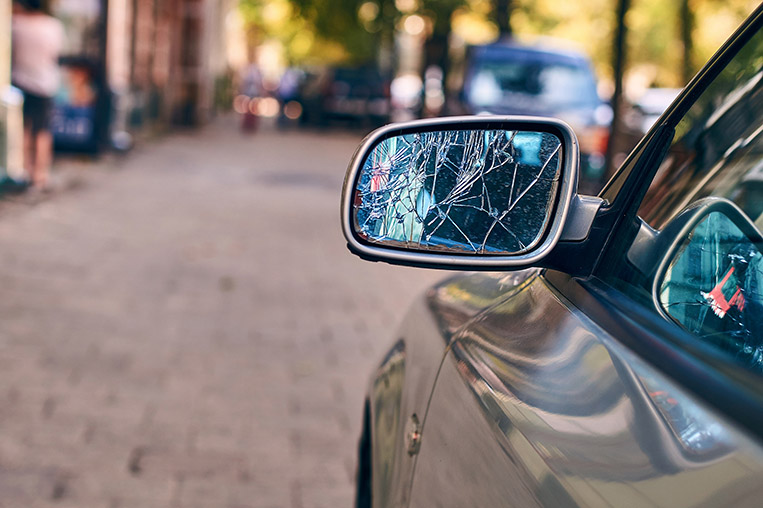
This particular piece of broken glass is one of the easier ones to fix, one of the easier ones to spot, and so if you get popped for this violation you can only blame yourself! Not only are your side view mirrors absolutely essential to a safe driving experience, but they’re highly visible to any officers with an itchy ticket finger. They’re also (relatively) cheap to fix!
Depending on the make and model of your car, just like rearview mirrors, side mirrors can get pretty expensive the more features they have. Some modern side view mirrors even have cameras built into them pointed at your blind spot. Defrosters, turn signals, and other gewgaws and gadgets all increase the cost of a particular side view mirror, but they’re still loss costly than continually receiving tickets or accidentally hitting another motorist because you couldn’t see them!
Two tricks to keep the cost of the repair down, though, are similar to the ones we discussed for rear view mirrors. If you aren’t exactly a stickler for keeping things faithful to the original design of your car, you can always slap a new reflective surface over the broken mirror that’s there now. You can get small, convex mirrors to add onto your existing mirror, or an entire cover for the broken area. Apply either or both as needed.
However, if you do want to replace the mirror, you can do so with a downgrade. Replacing the mirror but not the rearview camera or defrost mechanisms will save you a little extra cheddar, and most people will never know the difference.
Cracked Windshield
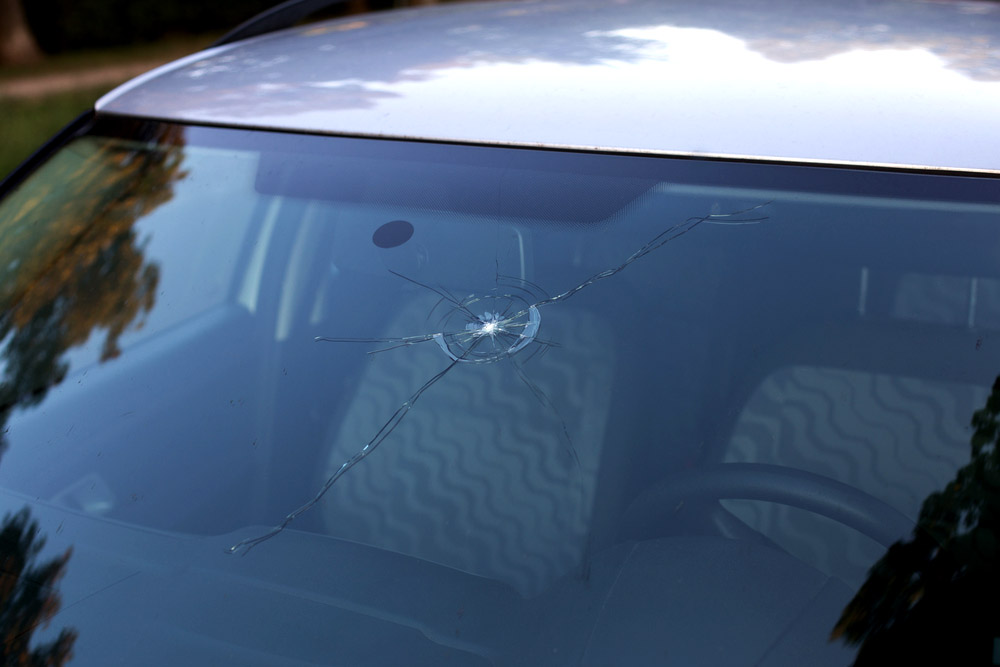
The reason cracked windshields are illegal should be (sorry, it has to be done) right in front of your face. If you can’t see where you’re going, you’re a danger not only to yourself and your passengers, but other people on the road as well. Windshields that are cracked to the point where it obstructs your view are easy to see for police officers, so you should definitely get it fixed as soon as possible .
If you do get a ticket, it’s typically a fix-it ticket with the exception of a windshield being so cracked that it’s considered by the ticketing officer to be reckless driving. If that’s the case, hopefully somebody told you to fix your windshield before you got to this part of the article! Otherwise, the tickets are almost always fix-it tickets.
Replacing your entire windshield can be costly, but if the crack is big enough, that might be the only fix available. That’s why our main advice for this problem is to fix the cracks as soon as you see them while they are (hopefully) still small. Many insurance companies will pay for 100% of the repair costs of small chips and cracks precisely because it saves them the cost of replacing an entire windshield down the line. So if you see a small crack, the fix might be free! Contact your insurer to confirm.
Broken Wipers
If you’re driving a car with a windshield, it’s got to have working wipers. (Did you know in some states, you can drive a car without a windshield as long as you wear protective gear, like goggles? You can, but we definitely don’t recommend it.) Broken wiper tickets aren’t especially common, but they’re typically fix-it tickets that cost a lot more than just getting your wipers fixed in the first place.
The cost of replacement windshield wipers will only run the average driver about $8-20, and that includes labor. If your problem isn’t the wipers but the motor that keeps them moving, that’s a little pricier. The average cost of a windshield wiper motor replacement is anywhere between $270 and $430, including labor. But, keep in mind the alternative. If you live in a rainy, snowy, or dusty climate, you know how critical your windshield wipers are in times of inclement weather. Although a wiper ticket may not be the end of the world, a wreck without functioning wipers sure can be! So get those wipers repaired before it turns into a much larger problem.
Broken Headlights
To get where you’re going, you need to see the road ahead of you, right? And at night, that means you need your headlights. Broken headlight tickets are common because it’s easy for the police to catch. And both headlights don’t need to be burned out to get a broken taillight ticket; you can be ticketed even if only one of your lights is out. A broken headlight ticket typically costs about $100.
Experts say that it’s important to replace headlight bulbs right away after they dim or burn out completely. And, just because your lights are out doesn’t mean the entire headlight unit needs to be replaced—often it’s just a matter of replacing the bulbs. If you only need to replace the bulb, you’re in luck. The pros will only charge you about $50 (including labor) to replace your bulb or bulbs for you, and depending on your skill and experience (and the type of car you drive), you may be able to do it yourself for the cost of the bulb alone (about $15-20), if you have the right tools and basic diagnostic equipment. Note that experts also recommend replacing both bulbs at the same time, even if one is still good (much like tires).
If the entire headlight assembly needs to be replaced, then you’re looking at about $250-700 in total costs. But the reasons for keeping your headlights in working order are pretty self-explanatory, and aren’t just about staying out of ticket trouble – you can’t drive safely at night (or in the rain) without them!
Broken Tail Lights
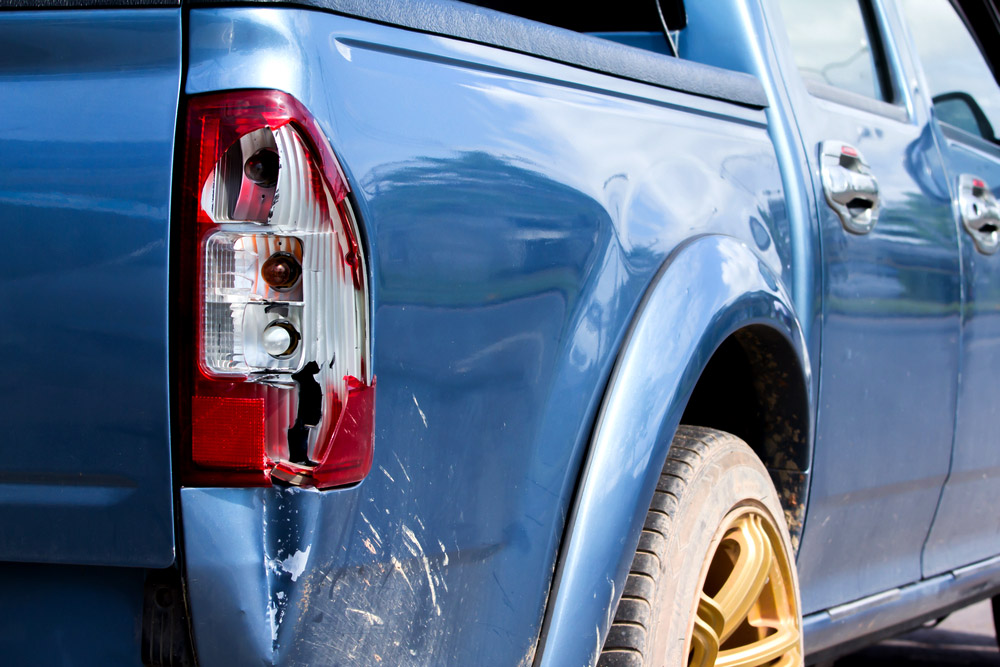
Although you may be totally unaware that one or both of your taillights are burned out, you can absolutely still be pulled over and cited for broken tail lights. You’re also at greater risk of being rear-ended. Fixing a burned-out taillight costs about as much as fixing a broken headlight, and tickets typically cost about $100-150. Sometimes drivers will come across a sympathetic officer who will let them off with a warning to fix the broken lights (and avoid a ticket), but you shouldn’t count on that being the case if yours burn out.
One trick to checking your own taillights to avoid a ticket or an accident (knowing that your back lights are out can indeed be “tricky”), is to take one end of a broomstick and press it against the brake pedal in your car, and then stick the other end firmly against the driver’s seat. Now just walk around to the back of your car and take a look at the lights. If they’re out, they need to be replaced.
Another option is to use your rearview mirror. Park in a place where the back of your vehicle is facing a glass or mirrored storefront (basically anyplace with a reflective surface). Push the brakes, and you should be able to glance behind you in the rearview and see their reflection in the storefront. It may be a good idea to take advantage of reflective surfaces when you can to run a taillight test, so you can avoid a costly ticket in the future!
Don’t worry, you can paint your car whatever you want without getting fined. But since we’re here, we thought we’d talk a little bit about your paint job. We are a touch up paint company after all. Driving around in a faded, scratched up rust bucket can attract negative attention so it’s best to take care of these things right away. Professional repaints and touch ups can cost you anywhere from hundreds to thousands of dollars. With TouchUpDirect products and a little elbow grease, you can do it at home for a fraction of the price. How much money can you save painting your own car? Let’s take a look at the different levels of damage and the tools you’ll need to fix them.
Larger Damage and Full Panel Repaints
You’re gonna need a lot of paint for these big jobs. This is where the Aerosol comes in. The TouchUpDirect Aerosol has a smooth fan spray that gives you a nice and even effect on your paint job. Each can of TouchUpDirect Aerosol has about 10 oz. in it. This shakes out to about 3-4 cans for bumpers or trunks, 2-3 cans for bumpers, and about 1 can for the mirror. The cost ranges from $59 to $89 a can. If you’re dealing with damage, check to see if the metal or plastic is showing. With this type of damage, you will need to lay down some Primer before you begin painting. You can get Primer with either the Preferred or Platinum Kits.
Small Scratches, Chips, and Nicks
We’ve all had to deal with these annoying little eyesores. Not big enough to warrant a trip to the body shop, they simply sit on your car’s coat taunting you. This is where TouchUpDirect’s touch up Brushes and Pens come in handy. The Pen is best used with areas smaller than a pencil eraser. Its specially designed tip gives the user good control over the paint, a good thing to have when working on such a small target area. The Brush is for slightly larger areas (around the size of a quarter or smaller). Its brush in cap top allows for a smooth and sleek application. These handy little applicators are great to have around for those moments when your car picks up those nasty chips and nicks during a drive. These kits run from $36 to $57 but if you want the best of both worlds, we do sell a Combo for a little bit more.
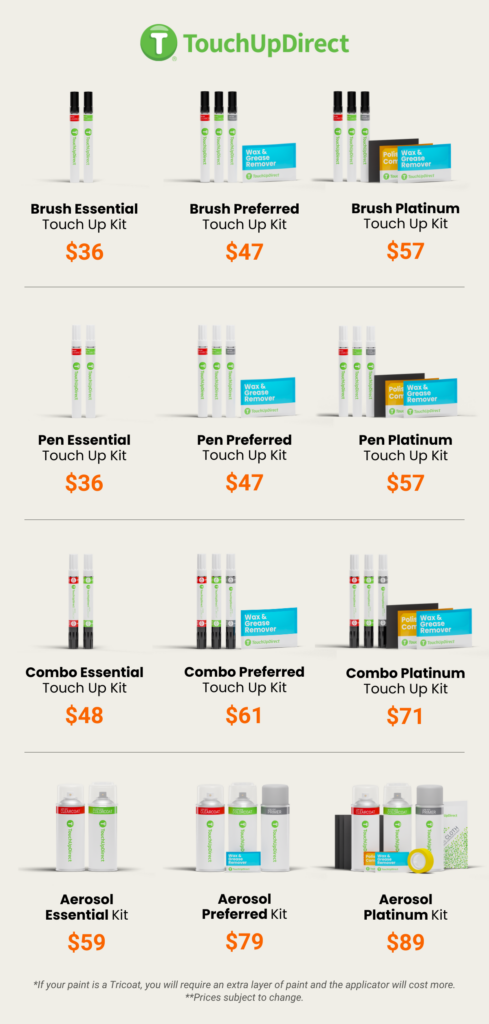
And that should be enough to get you started! Obviously, there’s a lot more to car maintenance than we could include in this article, so come back often for new tips and tricks on keeping your car running great, looking good, and ticket free!

 Cart
Cart
 Help Desk
Help Desk

